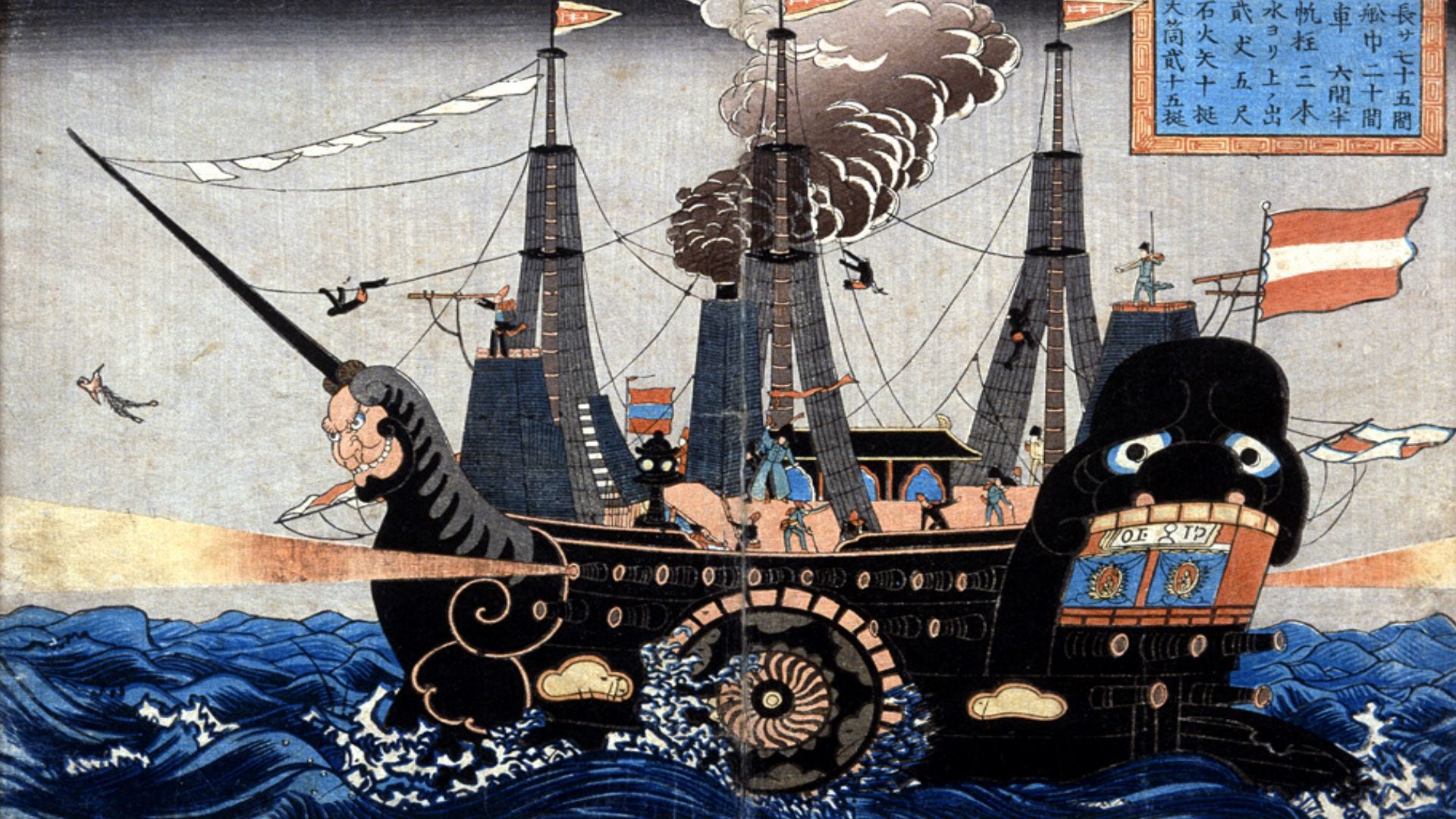Technology News
The Emergence of Techno-Colonialism
11 August 2024
|
Zaker Adham
In 1853, under orders from President Millard Fillmore, US Navy Commodore Matthew Perry led four warships to Japan, demanding the end of its 200-year isolationist policy. Perry's arrival in Tokyo Bay marked a pivotal moment, showcasing the industrial power of the West and leading to Japan's reluctant agreement to open up to trade with the United States through the Treaty of Kanagawa in 1854.

This historical event underscores how technology can be both a threat and a backbone of state sovereignty. Over the past century, technology has become integral to critical infrastructure, including schools, hospitals, energy grids, the internet, mobile phones, and AI chatbots. The US, leveraging its technological dominance, has established itself as the world's leading military power with over 750 bases in 80 countries.
However, the landscape of state sovereignty is shifting. While the US maintains financial sovereignty through the dollar's global reserve status, its economic sovereignty faces challenges from a rising China. In 2014, China surpassed the US in purchasing power parity terms to become the world's largest economy. With manufacturing output comparable to the US and the EU combined, China is now the top trading partner for over 120 countries.
Both the US and China are vying for control over critical technologies such as semiconductors, AI, synthetic biology, quantum computing, and blockchain. A 2023 US State Department study revealed that China leads in over 80% of 64 emerging technologies, with the US close behind.
As this technological rivalry intensifies, countries worldwide will be compelled to align with either the US or China, adopting their technologies, standards, values, and supply chains. This could herald a new era of technological colonialism, destabilizing global stability.
Interestingly, neither the US nor China dominates the semiconductor industry. Taiwan Semiconductor Manufacturing Company (TSMC) and South Korea's Samsung are the only manufacturers capable of producing semiconductors smaller than five nanometers. To change this, both superpowers are creating "technology sovereignty circles"—spheres of influence that countries must join to access critical technologies.
Unlike traditional colonialism, techno-colonialism focuses on controlling technologies that underpin the global economy and daily life. The US and China are onshoring the most innovative segments of global supply chains, creating strategic chokepoints. China, for instance, controls supply chains for critical raw materials, becoming the leading producer of electric vehicles. The US excels in chip-design software through companies like Cadence Design Systems and Synopsys.
Europe is also positioning itself as a key player. The EU hosts ASML, a Dutch company producing crucial lithography systems for advanced-chip manufacturing, and is a net importer of AI research talent. Europe also boasts more STEM students and startups than the US.
When onshoring is not feasible, technology sovereignty circles act as a subtler form of coercion, pushing countries into techno-economic servitude through entrenched dependencies. The UK experienced this in 2020 when the US forced it to exclude Huawei from its 5G network, threatening to cut off access to US intelligence and chip-design software. Similarly, the Netherlands was pressured to stop supplying ASML machinery to China, leading China to restrict exports of critical materials like gallium and germanium.
Countries without ownership of critical technologies risk becoming techno-colonies, serving technological sovereigns by manufacturing simple electronics, refining rare metals, labeling data sets, or hosting cloud services. Those not aligning with the US or China may become impoverished technological backwaters.
Amid geopolitical tensions, emerging technologies like quantum computing, AI, blockchain, and synthetic biology could either be tools of subjugation or democratized to foster shared prosperity. As discussed in the forthcoming book "The Team of 8 Billion," the challenge is to create a framework for planetary cooperation that reflects our interconnectedness and addresses global challenges like war, pandemics, and climate change.
Techno-colonialism is the latest iteration of the struggle for global dominance. The future depends on whether we use these technologies for subjugation or shared prosperity.




